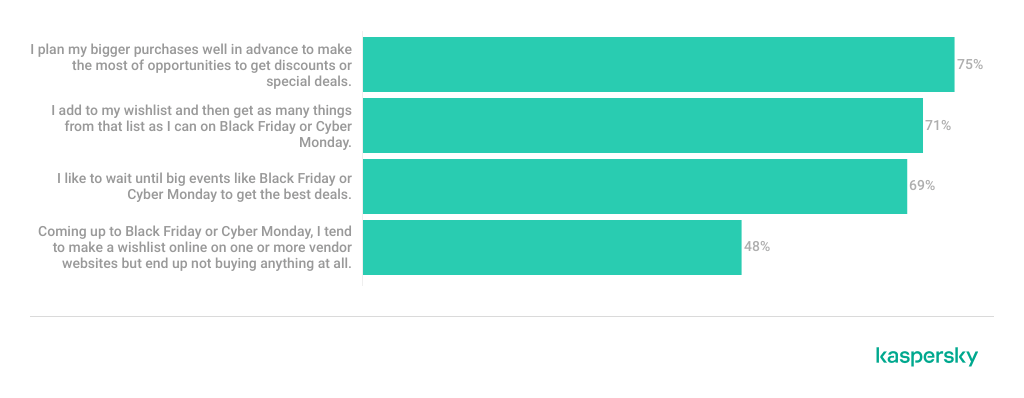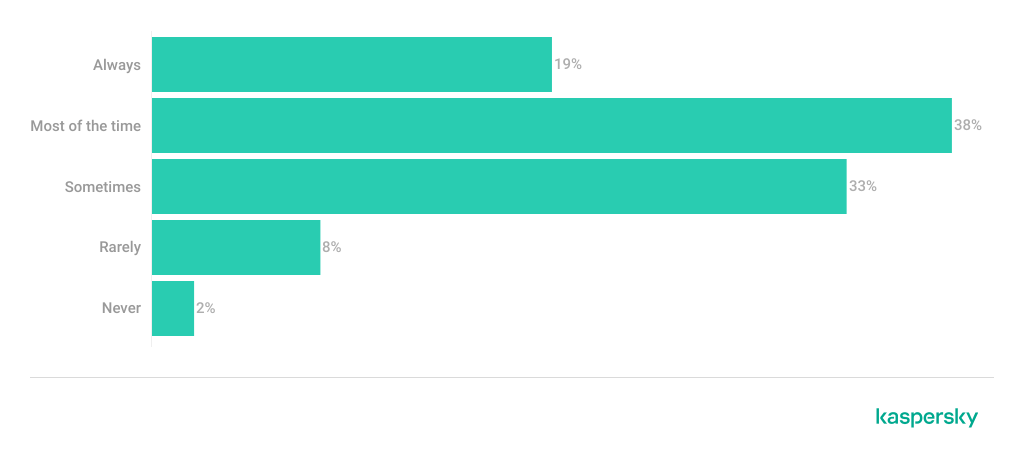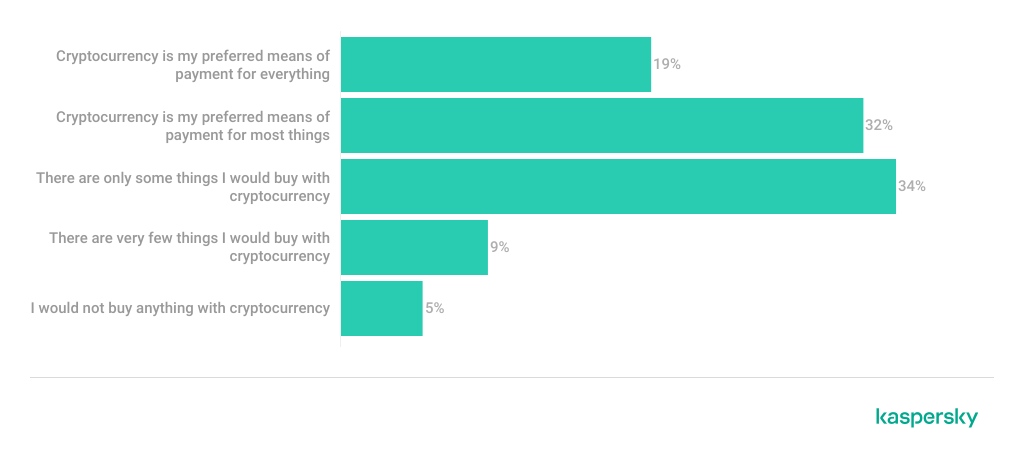
Global Shopping Trends Unveiled: Kaspersky Study Examines Consumer Behavior During Mega Sales Events

In a recent global survey titled ‘The Super Sale Game: who’s the winner? A study on how we shop and pay,’ commissioned by Arlington Research for Kaspersky, insights into consumer views and shopping habits during major sales events like Black Friday and Cyber Monday have been revealed.
- 48% make lists on different vendors only to buy none of the items they selected in advance.
- 90% buy things spontaneously during Black Friday or Cyber Monday.
- 46% do not believe Black Friday or Cyber Monday really mean getting the best possible deals, most of them still end up buying something.
- 58% of Black Friday and Cyber Monday shoppers will try to find and get whatever products or special deals are recommended by the influencers and bloggers they follow online.
- 46% of men and 41% of women understand cryptocurrency, almost equally in the end of 2023.
- 38% would use cryptocurrency to buy groceries, and almost as many to pay for meals in restaurants or for their theatre or concert tickets – both 36%.
- 81% of video-gamers would use cryptocurrency to pay for their game-related purchases, including chairs, computer equipment and video games themselves.
- 83% of respondents see Bitcoin as safe, next in line are Ethereum and USD Coin, rated as safe by 65%.
According to the Kaspersky survey, a staggering 90% of purchases during Black Friday and Cyber Monday are spontaneous. An unexpected finding highlights that social media plays a significant role in influencing purchase decisions, with 58% of respondents trying to grab special deals recommended by their favorite influencers and online bloggers. Interestingly, women (22%) outpace men (17%) as the more dedicated super-sales shoppers, and a majority of respondents (69%) patiently wait for major events to secure the best deals.

Black Friday and Cyber Monday, known for their massive global participation, witnessed a 3.5% growth in online sales to $65.3 billion globally in 2022. The Salesforce survey on sales recap further indicates that consumers spent $1.14 trillion online globally across the Holiday Season. Given these trends, Kaspersky delved into user behavior during such significant sales events.

Survey results highlight that the allure of special offers during Black Friday and Cyber Monday often leads consumers to make spontaneous purchases, with 90% buying things impulsively, and 57% doing so most or all of the time. External influences also play a role, with 58% willing to buy a product based on influencer recommendations, and 40% making unplanned purchases influenced by friends or family.
Women emerge as the more dedicated super-sales shoppers, with 22% consistently making spontaneous purchases during these events, compared to 17% of men. The age group of 25 to 34 years stands out, with 23% stating they always make spontaneous purchases during these mega-sales, surpassing other age groups.

For 71% of respondents, waiting for major events like Black Friday or Cyber Monday is worthwhile to secure the best deals. Moreover, 75% plan their significant purchases in advance, leveraging the lead-up to these events to maximize discounts and special deals.

Marina Titova, Vice-President, Consumer Product Marketing at Kaspersky, emphasized, “Black Friday and Cyber Monday are marked by unprecedented excitement and interest in online and offline shopping. Our research shows that 90 percent of users buy things spontaneously during big sales events, emphasizing the need for safety in online transactions.”
For the complete report, ‘The Super Sale Game: who’s the winner? A study on how we shop and pay,’ click here.










